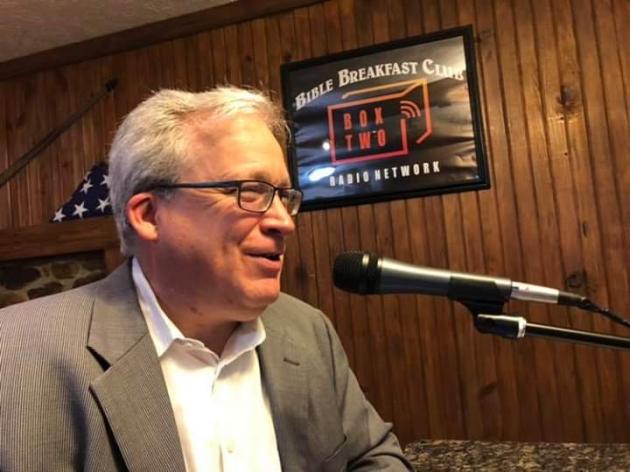Jim Waters: Abundance of caution’ appropriate concerning donors’ privacy
As the president of a nonprofit public policy organization which emphasizes making government at all levels more transparent, I’m often asked if we reveal our donors.
“No,” I respond.
“Why not?”
“It’s none of your business”
Unlike Joe Biden and his administration, I not only allow follow-up questions, but I also refuse to limit their content and welcome anyone to ask them while embracing these scenarios as teaching moments.
Ask away.
“Aren’t you inconsistent (some use less-diplomatic adjectives) by claiming to champion transparency while also refusing to disclose your own group’s supporters?”
Again, “no.”
I was invited a few years ago to participate in a panel discussion of the Bluegrass Pro Chapter of the Society of Professional Journalists that included such conservative stalwarts as Tom Eblen (pardon the sarc!) and national New York Times correspondent Campbell Robertson.
While the topic was “Finding real facts in an alternative fact world,” some progressives just can’t pass up an opportunity to attack an organization like the Bluegrass Institute, which I’ve led in “finding real facts” for more than a decade.
During Q&A time at the end of the session, a snarky questioner asked if I would reveal the institute’s donors.
“No.”
Then, I patiently tried to explain to the gentlemen that there’s a significant difference between making government more transparent versus providing someone the names of individuals and groups who support a private institute.
It’s none of my business or yours or anyone else’s who voluntarily donates to a private nonprofit organization. However, we all have the right – actually the responsibility – to demand our government tells us what it’s doing with our money.
There’s still accountability; if the Bluegrass Institute isn’t a good steward, donors can stop contributing.
Donors can choose which charities to support, or give to none at all.
And no one has a right to force them – or organizations to which they donate – to reveal that information.
Don’t pay your income taxes, however, and you’ll likely be seeing one of the 87,000 new agents the IRS wants to hire.
Sen. Whitney Westerfield, R-Fruit Hill, filed legislation protecting the rights and privacy of groups and the donors who give to them by prohibiting state agencies from requiring an individual or nonprofit organization – or contractors who may work for them – from being forced to reveal their contributors.
While the U.S. Supreme Court ruled on this issue as far back as 1958 when it decided Alabama couldn’t force the state’s National Association for the Advancement of Colored People (NAACP) to hand over its membership rolls – states like California have still tried to pull such shenanigans.
Which led to the U.S. Supreme Court to overrule California’s courts and uphold citizens’ privacy by protecting their First Amendment rights of association in Americans for Prosperity v Bonta, which challenged the Golden State’s policy forcing nonprofits to disclose their major donors.
The fact that California would try to force free-market conservatives to reveal their financial supporters even after past high court rulings contrary to its actions proves there’s no such thing as doing too much to protect the First Amendment right of association for citizen-donors and their preferred charities.
“We think the protections ought to be here just out of an abundance of caution – to make sure no one tries, whether through law or through some administrative act by executive order or any other means, to go after nonprofits that that particular executive officer doesn't like,” Westerfield said while testifying about Senate Bill 62 before his chamber’s State and Local Government Committee.
Which, in fact, is quite possible in the “alternative fact world” found in government’s bureaucratic labyrinths.
By the way, right during my conversation with that scolding attender’s question that night, a generous donor to the Bluegrass Institute walked in, sat down and joined the conversation.
“Who was it?”
It’s none of your – nor your government’s – business.
Jim Waters is president and CEO of the Bluegrass Institute for Public Policy Solutions, Kentucky’s free-market think tank. Read previous columns at www.bipps.org. Reach him at [email protected] and
@bipps on Twitter.



























